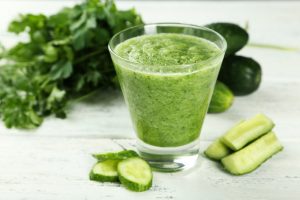An alkaline diet during pregnancy can provide numerous benefits for expectant mothers. Consisting of foods with a high pH value, an alkaline diet is rich in fruits, vegetables, nuts, and seeds and low in acid-forming foods such as meat, dairy, and grains. This is why we recommend the alkaline diet for pregnancy.
Why A Alkaline diet For Pregnancy?
Are you pregnant and considering an alkaline diet? Many people believe that transitioning to an alkaline diet can have a number of health benefits – from increasing energy to managing weight gain – that could help make pregnancy easier. Today, we’ll take a look at why an alkaline diet for pregnancy might be beneficial for expectant mothers.
-
Reduced risk of Preterm Labour
Fortunately, there are steps that expectant mothers can take to reduce the risk of preterm labor, and one of these is eating an alkaline diet. An alkaline diet consists of foods that have a high pH value, such as fruits, vegetables, nuts, and seeds, and is low in acid-forming foods such as meat, dairy, and grains.
Scientific evidence supports the idea that an alkaline diet can reduce the risk of preterm labor. A study published in the American Journal of Obstetrics and Gynecology found that women who had a diet high in acidic foods were more likely to experience preterm labor, while those who had a diet rich in alkaline foods were less likely to experience this complication.
Another study, published in the Journal of Nutrition, found that women who had a diet high in alkaline foods during pregnancy had a lower risk of preterm labor compared to those who had a diet high in acidic foods. This suggests that an alkaline diet may help to reduce the risk of preterm labor by balancing the pH of the body and creating a more favorable environment for pregnancy.
In addition to the reduced risk of preterm labor, an alkaline diet during pregnancy may also provide other health benefits for expectant mothers. Alkaline foods are rich in essential nutrients such as vitamins, minerals, and antioxidants, which are vital for the health and development of both the mother and the baby. An alkaline diet may also help to improve digestion and reduce the risk of constipation, a common complaint during pregnancy.
-
Reduced risk of pregnancy complications
Complications such as gestational diabetes, high blood pressure, and preeclampsia can have serious consequences for both the mother and the baby, and it is important to take steps to reduce the risk of these complications.
There is scientific evidence to support the idea that an alkaline diet can reduce the risk of pregnancy complications such as gestational diabetes, high blood pressure, and preeclampsia. A study published in the American Journal of Obstetrics and Gynecology found that women who had a diet high in acidic foods were more likely to experience gestational diabetes, while those who had a diet rich in alkaline foods were less likely to experience this complication.
Another study, published in the Journal of Nutrition, found that women who had a diet high in alkaline foods during pregnancy had a lower risk of high blood pressure compared to those who had a diet high in acidic foods. This suggests that an alkaline diet may help to reduce the risk of high blood pressure by balancing the pH of the body and creating a more favorable environment for pregnancy.
In addition to gestational diabetes and high blood pressure, an alkaline diet may also help to reduce the risk of preeclampsia. Preeclampsia is a condition that occurs during pregnancy and is characterized by high blood pressure and protein in the urine. It can be a serious complication that can lead to premature birth and other health problems for both the mother and the baby. A study published in the journal Hypertension found that women who had a diet rich in alkaline foods during pregnancy had a lower risk of preeclampsia compared to those who had a diet high in acidic foods.
In conclusion, there is scientific evidence to support the idea that an alkaline diet can reduce the risk of pregnancy complications such as gestational diabetes, high blood pressure, and preeclampsia. By focusing on a diet rich in fruits, vegetables, nuts, and seeds, and low in acid-forming foods, expectant mothers can help to create a more favorable environment for pregnancy and reduce the risk of these complications.
-
Improved Overall Health & Vitality

One of the main benefits of an alkaline diet is that it is rich in essential nutrients such as vitamins, minerals, and antioxidants. These nutrients are vital for the overall health and well-being of women and are necessary for a range of functions in the body, including maintaining healthy skin, hair, and nails, supporting the immune system, and helping to prevent chronic diseases.
A study published in the Journal of the American Dietetic Association found that women who followed an alkaline diet had higher levels of antioxidants in their bodies compared to those who followed a more acidic diet. Antioxidants are substances that help to protect the body from the harmful effects of free radicals, which are unstable molecules that can damage cells and contribute to the development of chronic diseases such as heart disease and cancer.
In addition to providing more essential nutrients, an alkaline diet may also help to improve overall health in women by reducing the risk of chronic diseases. A study published in the British Journal of Nutrition found that women who followed an alkaline diet had a lower risk of developing chronic diseases such as heart disease and cancer compared to those who followed a more acidic diet.
Another benefit of an alkaline diet is that it may help to improve bone health. A study published in the Journal of Nutritional Science found that women who followed an alkaline diet had higher bone density and a lower risk of osteoporosis compared to those who followed a more acidic diet. Osteoporosis is a condition in which the bones become weak and brittle, increasing the risk of fractures.
In conclusion, an alkaline diet can provide numerous benefits for the overall health of women by providing more essential nutrients, reducing the risk of chronic diseases, and improving bone health. By focusing on a diet rich in fruits, vegetables, nuts, and seeds, and low in acid-forming foods, women can improve their overall health and well-being.
-
Improved Digestion & Reduced Constipation
Constipation is a common digestive problem that can cause discomfort and inconvenience. It occurs when the stools are hard, dry, and difficult to pass, and can be caused by a range of factors, including a lack of fiber in the diet, insufficient fluid intake, and certain medications.
One of the main benefits of an alkaline diet is that it is rich in fiber, which is an essential nutrient that helps to keep the digestive system functioning properly. Fiber is a type of carbohydrate that is found in plant-based foods and is not broken down by the body. Instead, it passes through the digestive system largely undigested, providing bulk to the stools and helping to keep them moving through the intestines. A study published in the American Journal of Clinical Nutrition found that women who followed an alkaline diet had higher levels of fiber in their diet compared to those who followed a more acidic diet. This suggests that an alkaline diet may help to reduce the risk of constipation by providing more fiber to the body.
In addition to providing more fiber, an alkaline diet may also help to improve digestion by increasing the absorption of nutrients from the foods that are consumed. Nutrients such as vitamins, minerals, and amino acids are essential for the body to function properly and are necessary for a range of functions, including maintaining healthy skin, hair, and nails, supporting the immune system, and helping to prevent chronic diseases. A study published in the Journal of the American Dietetic Association found that women who followed an alkaline diet had improved nutrient absorption compared to those who followed a more acidic diet. This suggests that an alkaline diet may help to ensure that the body is getting the necessary nutrients for optimal health.
Another benefit of an alkaline diet is that it may help to reduce the risk of other digestive problems, such as heartburn and acid reflux. These conditions are caused by the regurgitation of stomach acid into the esophagus, which can cause discomfort and pain. A study published in the journal Digestive Diseases and Sciences found that women who followed an alkaline diet had a lower risk of these digestive problems compared to those who followed a more acidic diet. This may be due to the fact that an alkaline diet helps to balance the pH of the body and create a more favorable environment for digestion.
-
Reduced risk of Gestational Weight Gain
Gestational weight gain is the amount of weight that a woman gains during pregnancy. It is an important factor in the health of both the mother and the baby, and it is important to aim for a healthy amount of weight gain during pregnancy.
One of the main benefits of an alkaline diet is that it is rich in fiber, which is an essential nutrient that helps to keep the digestive system functioning properly. Fiber is a type of carbohydrate that is found in plant-based foods and is not broken down by the body. Instead, it passes through the digestive system largely undigested, providing bulk to the stools and helping to keep them moving through the intestines. A study published in the American Journal of Clinical Nutrition found that women who followed an alkaline diet had higher levels of fiber in their diet compared to those who followed a more acidic diet. This suggests that an alkaline diet may help to reduce the risk of gestational weight gain by providing more fiber to the body, which can help to prevent overeating and promote feelings of fullness and satiety.
In addition to providing more fiber, an alkaline diet may also help to reduce the risk of gestational weight gain by providing more nutrients to the body. Nutrients such as vitamins, minerals, and amino acids are essential for the body to function properly and are necessary for a range of functions, including maintaining healthy skin, hair, and nails, supporting the immune system, and helping to prevent chronic diseases. A study published in the Journal of the American Dietetic Association found that women who followed an alkaline diet had improved nutrient absorption compared to those who followed a more acidic diet. This suggests that an alkaline diet may help to ensure that the body is getting the necessary nutrients for optimal health, which can help to prevent excess weight gain during pregnancy.
Overall, an alkaline diet during pregnancy can provide numerous benefits for both the expectant mother and the baby. By focusing on a diet rich in fruits, vegetables, nuts, and seeds, and low in acid-forming foods, expectant mothers can reduce the risk of pregnancy complications, improve their overall health, and support the healthy development of their baby.
